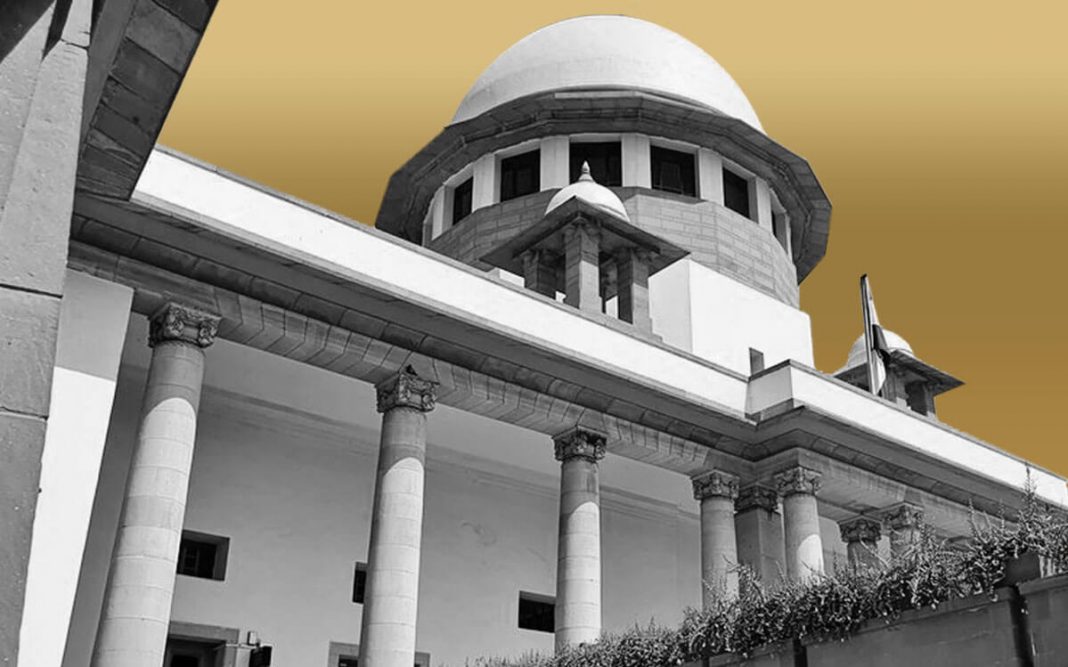The Supreme Court recently issued notice on a petition seeking the conclusion of sessions trial against an accused in a murder case.
The Division Bench of Justice L. Nageswara Rao and Justice B. R. Gavai issued notice on a plea of one Brijmani Devi where accused Pappu Singh is charged for her son’s murder.
According to police, Pappu Singh along with co-accused Deepak Kumar killed Rupesh Kumar on the night of February 19, 2020, in front of his mother at his home in the Naubatpur police station area of Patna district. Pappu Singh was on the run and was arrested on September 30, 2020. The Patna High Court granted bail to the accused.
Later in December last year, the Supreme Court set aside bail granted to Pappu Singh by the High Court, with the observation that an individual’s liberty is an invaluable right but courts cannot lose sight of the serious nature of accusations while considering a bail plea.
According to the petition, on the death anniversary of Rupesh Kumar, both the sons of Pappu Singh along with other gang members on instruction of Pappu Singh intruded in her house and killed her brother-in-law, who had testified in the sessions court case.
The septuagenarian petitioner and her octogenarian husband are so traumatized that if they are not protected immediately and their testimony is recorded freely, it will lead to miscarriage of justice and fiasco on the the part of the state and the justice delivery system, alleged the petition.
Also Read: Illegal layouts: Supreme Court appoints Senior Advocate Gopal Sankaranarayanan as amicus curiae
It is highlighted that the Court under Article 32(1) is free to devise any procedure appropriate for the particular purpose of the proceeding, namely, enforcement of a fundamental right and under Article 32 (2) the court has the implicit power to issue whatever direction, order or writ is necessary in a given case, including all incidental or ancillary power necessary to secure enforcement of the fundamental right.
“The power of the court is not only injunctive in ambit, that is, preventing the infringement of a fundamental right, but it is also remedial in scope and provides relief against a breach of the fundamental right already committed vide Bandhua Mukti Morcha case. If the court were powerless to issue any direction, order or writ in cases where a fundamental right has already been violated, Article 32 would be robbed of all its efficacy, because then the situation would be that if a fundamental right is threatened to be violated, the court can inject such violation but if the violator is quick enough to take action infringing the fundamental right, he would escape from the net of Article 32. That would, to a large extent, emasculate the fundamental right guaranteed under Article 32 and render it impotent and futile. We must, therefore, hold that Article 32 is not powerless to assist a person when he finds that his fundamental right has been violated. He can in that event seek remedial assistance under Article 32”
-petition reads.


